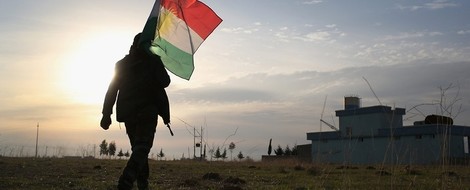Your podcast discovery platform
Curious minds select the most fascinating podcasts from around the world. Discover hand-piqd audio recommendations on your favorite topics.

piqer for: Globalization and politics Global finds
Sezin Öney, originally from Turkey, is based in Budapest and Istanbul. She her journalism career as a foreign news reporter in 1999 and she turned into political analysis as a columnist since 2007. Her interest in her main academic subject area of populism was sparked almost decade ago; and now she focuses specifically on populist leadership, and populism in Turkey and Hungary. She studied international relations, nationalism, international law, Jewish history, comparative politics and discourse analysis across Europe.
Kurds Fearful And Angry After Iraqi Forces Take Kirkuk
Financial Times' correspondent reporting from the city of Kirkuk, Erika Solomon, tweeted the following on October 19, 2017: "Some Kurds in Kirkuk said their mood so grim, now again see best hope in leaving country: “We don’t have a place here any more..we’re lost".
How come the political and military balances change so suddenly in Kirkuk?
Kirkuk is a key city of far-reaching geographical and political significance: a multi-ethnic urban center of more than one million people of predominantly Kurdish, Arab, Turkmen and Christian backgrounds and the hub of one of major oil-producing areas of Iraq. Kirkuk had been held by the Kurdish Peshmerga forces since 2014, after the Iraqi army fled from an offensive by ISIS. But, since 16 October 2017, Iraqi troops, police and Iranian-backed militias known as Popular Mobilization Units (PMUs) have gained control of the city. There were initially defiant messages from the Kurdistan Regional Government (KRG) and its Peshmerga fighters, but they withdrew from Kirkuk without putting up a fight. It is also reported that around 100,000 people have fled the city.
"Kirkuk saga" developed barely days after the independence referendum that took place on 25 September 2017 within the territories held by the KRG. The oil revenues, including specifically those from Kirkuk, were central to the independence, and the loss of the city has dashed hopes of an independent state for the Kurds. And now, the KRG's two dominant factions, the Kurdistan Democratic Party (KDP) and the Patriotic Union of Kurdistan (PUK), as well as the other key political actors, are playing the blame game for the loss of Kirkuk.
Against this backdrop, how are the remaining people of Kirkuk reacting to and coping with this sudden shift of power? Erika Solomon's article gives important clues regarding not just the status quo in Kirkuk, but also the potential developments awaiting the city and beyond by reflecting over the sentiments of its residents.
